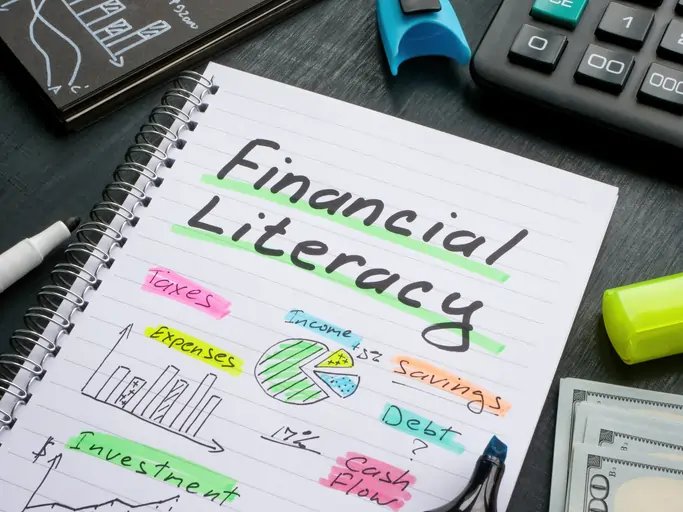The Financial Literacy Deficit: A Hidden Economic Risk For The UK


When nearly half of young adults in the UK have £0 in savings, it's tempting to blame poor budgeting or rising rent. But dig deeper, and a more systemic issue appears - a national financial literacy deficit that’s quietly becoming a macroeconomic risk. According to figures released by Gen Z financia...
When nearly half of young adults in the UK have £0 in savings, it's tempting to blame poor budgeting or rising rent.
But dig deeper, and a more systemic issue appears - a national financial literacy deficit that’s quietly becoming a macroeconomic risk.
According to figures released by Gen Z financial literacy platform Prograd, a staggering 76% of 18- to 35-year-olds have less than £1,000 in savings, with those aged 25–30 faring worst.
For a generation expected to power the workforce and economy for decades to come, the reality is concerning: too many lack the knowledge - and the tools - to make good financial decisions.
And this isn’t just a personal finance problem. It’s a national one.
Low Financial Literacy, High Economic Cost
The link between financial literacy and economic stability is well-documented. When citizens understand credit, interest rates, savings, and investment basics, they’re more likely to:
● Avoid high-interest debt
● Plan for the future
● Participate in the economy more confidently
Conversely, a population without those skills is more prone to poor borrowing habits, overreliance on credit, and limited financial resilience.
These issues compound over time, creating a drag on everything from consumer spending to housing market participation.
In the UK, where inflation and cost-of-living pressures continue to rise, the consequences of this knowledge gap are becoming more visible.
A financially underprepared generation not only affects GDP growth but also puts increased pressure on public services, welfare support, and long-term pension planning.
Savings Gap Signals Deeper Issues
Prograd’s National Savings Week data paints a stark picture:
● 47% of young people (18–35) have no savings at all
● Over 50% of 25–30-year-olds have nothing set aside
● Regional disparities persist, with East Anglia, Wales, and Scotland showing the highest proportion of young people with £0 in the bank
These figures suggest that it's not just a matter of discipline - it’s about not knowing where to start.
Financial literacy is the key to unlocking brighter financial futures for the next generation. Too many young people are entering adulthood without understanding the basics of credit, savings, or how to build wealth - and it’s costing them.
Education Systems Are Playing Catch-Up
Despite the introduction of financial education into the UK national curriculum in 2014, the roll-out has been patchy and under-resourced.
Many schools still treat it as an optional topic, and students often leave with minimal understanding of real-world money matters like:
● How credit scores work
● Budgeting for rent and bills
● Navigating student loans
● Understanding financial products (e.g. ISAs, pensions, mortgages)
As a result, much of Gen Z turns to TikTok or YouTube for financial advice—sources that can be helpful, but also dangerously inconsistent or oversimplified.
The Role of Fintech in Bridging the Gap
This is where FinTech platforms step in. Many of them combine engaging content with smart tools to help young people understand, access, and manage financial products confidently.
From decoding credit options to offering personalised funding advice, UK fintechs are empowering users to act on them.
Why the UK Needs a National Strategy
Financial literacy should no longer be seen as a “nice to have” life skill - it’s an important national infrastructure. To truly tackle the deficit, a broader effort is needed, involving:
● Updated curriculum
● Partnerships between government, schools, and fintech providers
● Incentives for employers to offer financial wellness training
● Regulatory frameworks that support transparent and ethical financial products for young consumers
Investing in financial education is not just about helping individuals - it’s about future-proofing the economy.
The UK’s Financial Future
Poor financial literacy is more than a generational frustration - it’s a slow-burning economic threat.
If young people don’t have the tools to make informed financial decisions, the ripple effects will be felt in productivity, consumer confidence, and national growth for years to come.
The question is no longer “can we afford to teach financial literacy?” - but “can we afford not to?”
Financial literacy is the ability to understand and effectively manage personal finances, including budgeting, saving, investing, and understanding credit.
Low financial literacy can lead to poor financial decisions, increased debt, and reduced consumer spending, ultimately affecting economic growth and stability.
Fintech companies provide innovative tools and resources that help individuals understand financial products and make informed financial decisions.
Explore more articles in the Top Stories category











